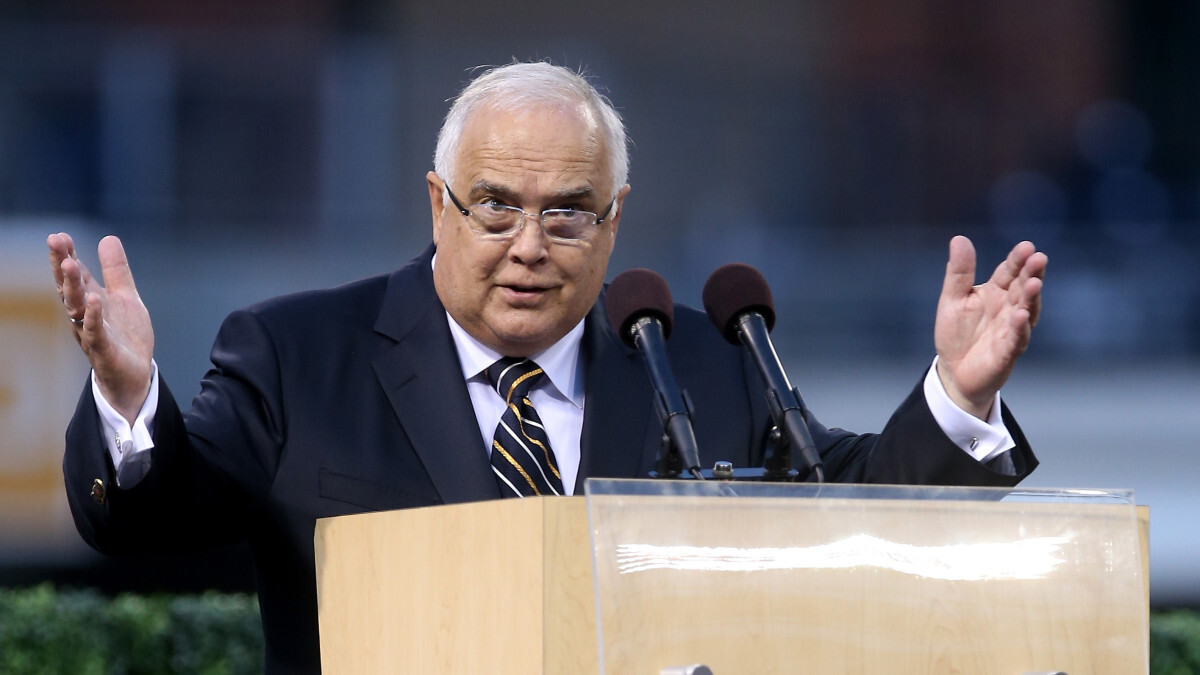
Are you in the market for a mortgage or simply curious about the ins and outs of home financing? Look no further! In this article, we’ll explore 18 mortgage fun facts that will not only enlighten you but also entertain you along the way.
From fascinating historical tidbits to surprising statistics, you’ll quickly discover there’s more to mortgages than meets the eye. So, sit back, relax, and embark on a journey of mortgage-related knowledge that will leave you both informed and amused. Whether you’re a first-time homebuyer or a seasoned homeowner, these fun facts will provide valuable insights into the world of mortgages.
Key Takeaways:
- Mortgages have a fascinating history, from ancient Mesopotamia to modern-day Denmark, and understanding the origins and unique features can help you navigate the world of home loans.
- Exploring mortgage options, such as adjustable-rate mortgages, jumbo loans, and refinancing, can empower you to make informed decisions and save money on your homeownership journey.
Mortgage The word “mortgage” comes from Old French and means “death pledge.”
Did you know that the term “mortgage” originates from the Old French words “mort” meaning “dead” and “gage” meaning “pledge? The concept behind this is that the loan is secured against the property, with the understanding that if the borrower defaults on their mortgage payments, the lender has the right to take ownership of the property, effectively metaphorically “killing” the pledge.
Mortgage The world’s longest mortgage was recorded in the United Kingdom.
In 2016, a couple in the United Kingdom set a new record for the longest mortgage ever recorded. Their mortgage spanned an incredible 1,530 years, with repayments planned up until the year This unique mortgage structure was possible due to the nature of a land trust that ensured the property would remain in the family for generations to come.
Mortgage The world’s first mortgage was traced back to ancient Mesopotamia.
The concept of mortgaging property dates back thousands of years. The earliest recorded mortgage was found in ancient Mesopotamia (modern-day Iraq) around 2000 BC. This early form of mortgage involved using agricultural land as collateral for loans, providing security to lenders in exchange for access to funds.
Mortgage Denmark has the lowest mortgage interest rates in the world.
If you’re looking for a low-interest mortgage, Denmark might just be the place to be. The country consistently offers some of the lowest mortgage rates globally, thanks to its unique financing system. Danish banks fund mortgages by issuing bonds to investors, allowing for competitive rates that benefit homebuyers.
Mortgage The world’s oldest mortgage bank was established in Sweden.
Sweden is home to the oldest mortgage bank in the world – Sveriges Riksbank. Established in 1668, this institution has been instrumental in providing mortgage loans and promoting economic stability in the country for over three centuries.
Mortgage The average mortgage term is around 30 years.
When people think of a mortgage, a 30-year term often comes to mind. This is the most common mortgage duration, providing borrowers with an extended period to repay their loan. However, mortgage terms can vary widely, ranging from as short as 5 years to as long as 50 years, depending on the lender and the borrower’s needs.
Mortgage Adjustable-rate mortgages (ARMs) have fluctuating interest rates.
An adjustable-rate mortgage (ARM) is a type of mortgage where the interest rate fluctuates over time. Unlike a fixed-rate mortgage, which locks in a specific rate for the entire term, ARMs are subject to market conditions and can increase or decrease based on external factors such as the economy and financial market trends.
Mortgage The mortgage lending process involves four major stages.
Getting a mortgage involves several stages: application, underwriting, approval, and closing. During the application stage, borrowers provide their financial information to the lender. Underwriting involves assessing the borrower’s creditworthiness and determining the loan terms. Once approved, the borrower proceeds with closing, where the mortgage documents are signed, and funds are disbursed.
Mortgage Private mortgage insurance (PMI) is often required for low down payment loans.
When borrowers put down less than 20% of the home’s purchase price as a down payment, lenders typically require private mortgage insurance (PMI). This insurance protects the lender in case the borrower defaults on the loan. Once the loan-to-value (LTV) ratio reaches 80%, borrowers can typically request the cancellation of PMI.
Mortgage Foreclosure is a legal process in which a lender takes possession of a property due to non-payment.
In cases of non-payment, lenders have the right to initiate foreclosure proceedings. Foreclosure is a legal process through which a lender takes possession of a property to recover the debt owed by the borrower. This can result in the borrower losing their home and the lender selling the property to recoup their losses.
Mortgage A reverse mortgage allows seniors to access the equity in their homes.
A reverse mortgage is a specific type of loan designed for homeowners who are 62 years or older. It enables seniors to convert a portion of their home’s equity into cash, which can be received as a lump sum, fixed monthly payments, or a line of credit. Unlike traditional mortgages, repayments are typically not required until the borrower moves out or passes away.
Mortgage Mortgage interest is tax-deductible in many countries.
In various countries, homeowners can deduct mortgage interest payments from their taxable income, resulting in potential tax savings. However, tax laws and regulations differ, so it’s crucial to consult with a tax professional or advisor to understand the specific rules and eligibility criteria in your jurisdiction.
Mortgage Jumbo mortgages are used for higher-priced properties.
When purchasing a higher-priced property that exceeds the conforming loan limits set by government-sponsored enterprises like Fannie Mae and Freddie Mac, borrowers often turn to jumbo mortgages. These loans have higher loan limits and may require larger down payments and stricter qualification criteria.
Mortgage The first step in the mortgage process is often getting pre-qualified or pre-approved.
Before starting the home search, many buyers choose to get pre-qualified or pre-approved for a mortgage. Pre-qualification involves a basic assessment of the borrower’s financial situation, while pre-approval involves a more detailed review and verification of income, credit, and other factors. Both provide an estimate of how much a borrower can borrow, helping guide the homebuying process.
Mortgage Refinancing allows borrowers to replace their current mortgage with a new one.
Refinancing involves replacing an existing mortgage with a new loan that offers better terms, such as a lower interest rate or modified repayment terms. This can help borrowers save money on monthly payments, reduce the loan term, or access equity in the property.
Mortgage Mortgage brokers can help borrowers find the best loan options.
Mortgage brokers act as intermediaries between borrowers and lenders, helping homebuyers find the most suitable loan options for their needs. They work with multiple lenders and can provide access to a wider range of mortgage products, potentially saving borrowers time and effort in finding the best loan terms.
Mortgage Overpaying on a mortgage can save thousands of dollars in interest.
By making additional payments towards the principal balance of a mortgage, borrowers can reduce the overall interest paid over the life of the loan and shorten the loan term. Even small additional payments can make a significant impact on long-term savings, potentially saving homeowners thousands of dollars.
Mortgage Online tools and calculators can help borrowers estimate loan affordability and compare rates.
With the advent of technology, borrowers now have access to numerous online tools and calculators that can help them estimate how much they can afford to borrow, compare interest rates, calculate mortgage payments, and explore different loan scenarios. These resources provide valuable insights and empower borrowers to make informed decisions.
Conclusion
In conclusion, mortgage loans are a complex yet fascinating aspect of the real estate industry. From their historical significance to their influence on the economy, mortgages have a profound impact on individuals and societies alike. Understanding the ins and outs of mortgages can empower borrowers to make informed decisions and achieve their homeownership goals.Whether you’re interested in the evolution of mortgage rates or the various types of mortgage loans available, these fun facts offer a glimpse into the world of mortgages. From the longest recorded mortgage term to the oldest mortgage bank, the mortgage landscape is full of fascinating tidbits that highlight its significance in our lives.So the next time you find yourself pondering about mortgages, remember these 18 fun facts to impress your friends and family with your mortgage knowledge. And when you embark on your mortgage journey, be sure to conduct thorough research, work with trusted professionals, and carefully consider all the factors involved.
FAQs
1. How long is the longest recorded mortgage term?
The longest recorded mortgage term was an incredible 999 years. This ultra-long-term mortgage provides a sense of permanent ownership for the borrower.
2. When was the first mortgage bank established?
The first mortgage bank, Banca Monte dei Paschi di Siena, was established in 1472 in Italy.
3. What is the typical down payment required for a mortgage?
While it varies depending on the lender and type of loan, the typical down payment requirement for a mortgage is around 20% of the purchase price.
4. Can I get a mortgage if I have bad credit?
While having bad credit can make it more challenging to secure a mortgage, it is still possible. There are specialized loan programs and lenders who work with borrowers with less-than-perfect credit.
5. What is the difference between a fixed-rate and an adjustable-rate mortgage?
A fixed-rate mortgage has a consistent interest rate throughout the loan term, while an adjustable-rate mortgage (ARM) has an interest rate that can change over time based on market conditions.
6. What is mortgage refinancing?
Mortgage refinancing refers to the process of replacing an existing mortgage with a new one, often with more favorable terms such as a lower interest rate or monthly payment.
Was this page helpful?
Our commitment to delivering trustworthy and engaging content is at the heart of what we do. Each fact on our site is contributed by real users like you, bringing a wealth of diverse insights and information. To ensure the highest standards of accuracy and reliability, our dedicated editors meticulously review each submission. This process guarantees that the facts we share are not only fascinating but also credible. Trust in our commitment to quality and authenticity as you explore and learn with us.


